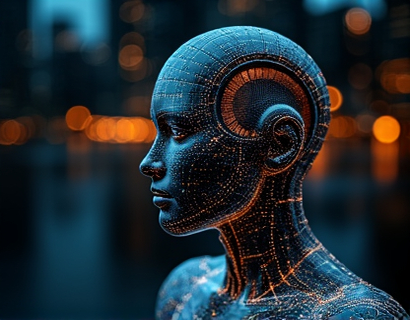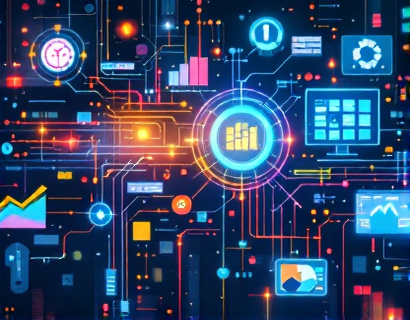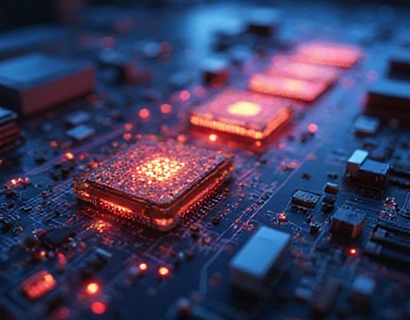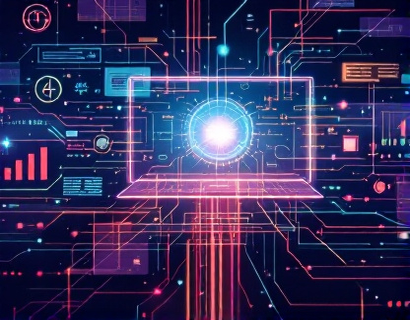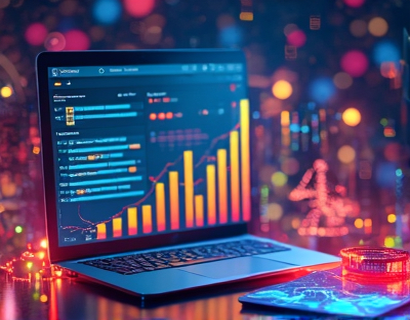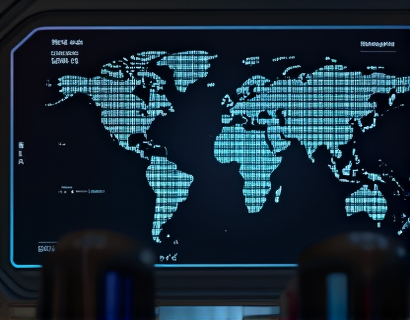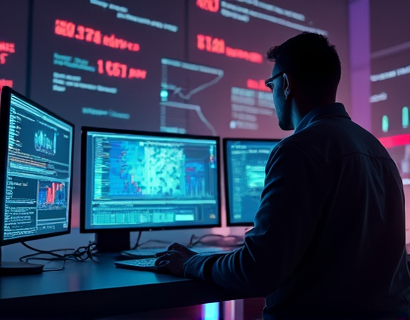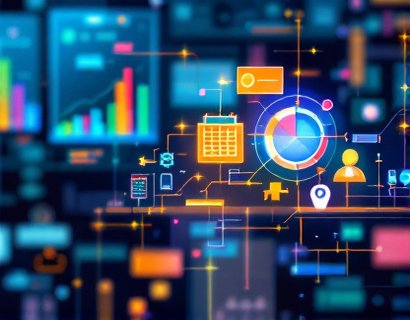Revolutionizing Digital Transformation: The Synergy of AI and Crypto
The intersection of artificial intelligence (AI) and cryptocurrency is redefining the digital landscape, offering unprecedented opportunities for innovation and enhanced user experiences. This synergy is not just a trend but a transformative force that is reshaping how we approach digital projects and solutions. By merging AI-driven insights with the security and transparency of blockchain technology, tech innovators and crypto enthusiasts can unlock new dimensions of engagement and efficiency.
The integration of AI and cryptocurrency is creating a new paradigm in digital transformation. AI technologies, such as machine learning and natural language processing, are being harnessed to analyze vast amounts of data generated by blockchain networks. This analysis provides deep insights into user behavior, market trends, and system performance, enabling more informed decision-making and personalized experiences. Meanwhile, the immutable and decentralized nature of blockchain ensures that these insights are secure and trustworthy, fostering a higher level of trust among users and stakeholders.
Enhanced Insights Through AI and Blockchain
One of the most significant benefits of combining AI with cryptocurrency is the ability to derive actionable insights from complex data sets. Blockchain provides a transparent and tamper-proof ledger of transactions, which AI can analyze to identify patterns, predict future trends, and optimize operations. For instance, in the finance sector, AI algorithms can process transaction data to detect fraudulent activities, manage risks, and automate compliance processes. This not only enhances security but also improves operational efficiency, reducing costs and increasing service reliability.
In the realm of supply chain management, AI and blockchain together offer real-time tracking and verification of goods. AI can analyze data from blockchain to monitor the movement of products, ensuring authenticity and quality. This level of transparency builds trust among all parties involved, from manufacturers to consumers. Similarly, in the healthcare industry, AI can analyze medical records stored on a blockchain to provide personalized treatment recommendations, improving patient outcomes and streamlining healthcare delivery.
Secure Solutions with Blockchain and AI
Security is a paramount concern in the digital age, and the combination of AI and blockchain addresses this need effectively. Blockchain's inherent security features, such as cryptographic hashing and consensus mechanisms, provide a robust foundation. AI enhances this by continuously monitoring the network for anomalies and potential threats. Machine learning models can detect unusual patterns that may indicate a security breach, allowing for proactive measures to be taken before any damage occurs.
Smart contracts, self-executing contracts with the terms directly written into code, benefit greatly from this synergy. AI can automate the execution of smart contracts based on predefined conditions, ensuring that transactions are executed accurately and efficiently. This reduces the need for intermediaries, lowering transaction costs and increasing speed. Moreover, AI can help in drafting and optimizing smart contracts, ensuring they are free from vulnerabilities and legal loopholes.
Driving Innovation and Engagement
The fusion of AI and cryptocurrency is not only about security and efficiency; it is also a catalyst for innovation and user engagement. By leveraging AI, developers can create more intuitive and user-friendly applications. For example, chatbots powered by natural language processing can provide 24/7 customer support, answering queries and guiding users through complex processes seamlessly. This enhances the user experience, making digital services more accessible and enjoyable.
In the gaming industry, AI and blockchain together can revolutionize the way games are designed and played. AI can generate dynamic game environments and non-playable characters (NPCs) that adapt to player behavior, creating a more immersive experience. Blockchain ensures that in-game assets are unique and tradable, giving players true ownership and the ability to monetize their skills and achievements. This model, known as play-to-earn, is gaining popularity and has the potential to transform the gaming landscape.
Case Studies and Real-World Applications
Several projects and platforms are already leveraging the power of AI and blockchain to drive innovation. One notable example is Decentralized Finance (DeFi), which uses blockchain to create financial services without traditional intermediaries. AI algorithms can optimize trading strategies, manage risk, and provide personalized financial advice, making DeFi more accessible and efficient. Another example is the use of AI in digital identity verification on blockchain platforms, ensuring secure and privacy-preserving identity management.
A specific case in the art world is the use of blockchain to verify and authenticate digital art, combined with AI for creating and curating art collections. This ensures that artists receive fair compensation and that collectors can trust the authenticity of the art they purchase. AI-driven platforms can also analyze market trends and predict the value of digital art, providing valuable insights to both creators and collectors.
Challenges and Considerations
While the potential of AI and blockchain is immense, there are challenges that need to be addressed. Scalability remains a significant issue for blockchain technology, as processing large volumes of transactions can be slow and resource-intensive. However, advancements in blockchain architectures, such as sharding and layer 2 solutions, are addressing these concerns. On the AI side, ensuring the ethical use of data and preventing biases in algorithms is crucial. Transparency and accountability in AI decision-making processes are essential to build trust and ensure responsible innovation.
Regulatory frameworks are also evolving to keep pace with these technologies. Compliance with data protection laws and financial regulations is necessary to operate effectively in the current landscape. Collaboration between technologists, policymakers, and industry stakeholders is vital to create a balanced and supportive environment for innovation.
Future Outlook
The future of AI and cryptocurrency is bright, with ongoing advancements promising even greater integration and impact. As AI continues to evolve, its ability to process and analyze data from blockchain networks will become more sophisticated, leading to more intelligent and autonomous systems. The convergence of these technologies will likely lead to the development of new industries and business models, further driving digital transformation.
For tech innovators and crypto enthusiasts, embracing this synergy is key to staying competitive and relevant. By understanding and leveraging the strengths of both AI and blockchain, professionals can create groundbreaking solutions that enhance user experiences and open new opportunities. The path ahead is exciting, and those who navigate it with foresight and creativity will be at the forefront of the next digital revolution.





